When choosing a language service provider to meet your challenges, it is important to pay attention to whether the company has certificates of compliance with international quality standards. For translation companies, these certifications are mainly ISO 9001, ISO 17100 and ISO 13611. The scope of certification typically includes translation, localization, layout and linguistic consultation services. A highly developed in-house quality management system allows a linguistic company to provide services at a high professional level and ensure unsurpassed customer service.
The ISO 9001 standard (“Quality management systems – Requirements”) establishes criteria for quality management systems and is based on principles like maximum customer focus, management involvement, process approach and continuous improvement. Companies certified under this standard usually undergo internal and/or external audits on a regular basis. This standard is applicable to the activities of absolutely any organization, not just linguistic ones — millions of companies around the world are certified to this standard and successfully adhere to it in their activities.
The ISO 17100 standard (“Translation Services – Requirements for Translation Services”) contains requirements for key processes, resources and other aspects necessary for the provision of high-quality translation services. The use of raw machine translation results and the subsequent editing of such translations is outside the scope of this standard. This standard also does not apply to interpreting services. The interaction between a translation company and its clients is a key element of the standard. Following this standard allows the relationship between the client and the language service provider to be built in the most effective and productive way.
The ISO 13611 standard (“Interpreting – Guidelines for community interpreting”) is a methodological document which establishes criteria and requirements for the performance of interpretation at the community level in various circumstances and in a variety of conditions, including government agencies, healthcare institutions, religious and other organizations, and in emergency situations.
Companies that are prepared to follow international standards and are certified in accordance with them gain a huge advantage in the large translation and localization market, because following international standards is a kind of marker that the company conducts serious professional activities and is ready to be responsible for the results of its work, and that is important for any client or partner.
ILS applies a quality management system in accordance with ISO 9001 in the provision of translation, localization, layout and language consulting services and pays close attention to quality assurance, which is the key to providing language services at the highest level — well-established partnerships with many companies from around the world confirm that better than any words can.




